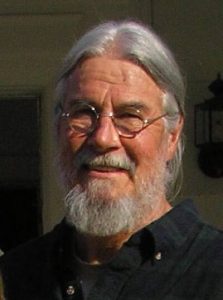By Brian Birmingham
Here are some more memories from my visit to “Twelve Tribes “ Morning Star Ranch,” which is near San Diego, California about eight years ago. A group that has often been called a “cult” by researchers and the media.
Twelve Tribes has a standard “Friday Night Celebration.” Everyone gathers in “the schoolhouse” at six, where tea and cookies are served. Then at about six-thirty the singing and dancing begins.
Visitors are greeted with applause and a man named Thomas praises the visitors. He says that all of the Twelve Tribes members are so grateful that visitors have come to be with them. Thomas also praises “the zeal of the new brothers.” Everybody claps like they are welcoming some long-lost relatives.
Was this a carefully crafted performance of “love bombing”? It certainly seems a bit over the top.
After all the singing and dancing Twelve Tribes members go around the gathered circle, telling everyone what they were grateful for, as well as the things they want to repent about that happened during the week.
Some members cry when they describe the depth of their gratitude for having “come into the Body of Messiah” (aka Twelve Tribes). Others speak about their guilt, frustration and discouragement “in the flesh.”
This sounds like group confessional. And it looks like what is called the “Cult of Confession,” an aspect of thought reform (aka “brainwashing”).
One little girl, maybe twelve years old, talks about how privileged she is to be raised in this community, as part of the “Body of Messiah.” But she still sinfully wishes that she could be a part of “the world” and have her own iPod to listen to worldly music, go to movies, and do other worldly things.
Twelve Tribes appears to sharply divide humanity into a “we vs. they” dichotomy. And the “worldly” people apparently are outsiders living in sin. An example of a seemingly cult-like mindset typified by black and white thinking. Or what has been called the “demand for purity.”
As the little girl speaks, her mother is pinching her arm and audibly whispering to her, “Show it, show it!” The little girl begins to emote more in response to her mother’s insistent coaching. She is coerced to portray more regret and repentance.
The little girl subsequently explains that she really does not need any of those toys that the children in the world have, and that she knows that toys are all a waste of time.
She cries repeatedly when she speaks about the privilege she feels for being raised in Twelve Tribes and how grateful she is to submit to her parents’ authority.
The little girl speaks glowingly about her parent’s discipline. But Twelve Tribes children are beaten with wooden sticks. But the little girl says that such punishment is because her parents truly love her and don’t want her to fall into “the temptations of the world.”
It is disturbing to watch how controlled the Twelve Tribes children are at the meeting. And is it a privilege for the little girl to be pinched and coached so intensely by her mother? Why does the little girl need to hear her mother say, “Show it, show it!” over and over again?
No one in the Twelve Tribes seems to see anything wrong. Everybody gives little girl a hearty “AMEN” after she cries and talks about her endless gratitude for her supposedly privileged existence.
The message of the Gathering is simple, “the outside world is bad and unsafe, but the Body of Messiah is edifying, fairly perfect and always “safe.”
Twelve Tribes leader, Mevesehr and his family is at the ranch visiting for the weekend from Vista.
Mevesehr and his wife Poriah have six children. Even though Elkin-ha is the leader at the ranch, he defers to Mevesehr, who is a 21-year member of the group. Mevesehr does most of the talking and teaching.
A handful of ranch leaders are also attending a Twelve Tribes conference in North Carolina, where the top Twelve Tribes leader “Yoneq” (Delbert Eugene Spriggs) lives.

Delbert Eugene Spriggs
After praising the guests and the seemingly coached personal expressions of gratitude, Mevesehr offers a brief homily about gratitude and forgiveness in the Body.,
Mevesehr tells everyone that he has just been to North Carolina and that he spoke with Spriggs. He says that when Spriggs is convalescing from some kind of serious illness. But that Spriggs is regaining his health.
Mevesehr claims that he literally entered Spriggs’ room backwards, with his back turned, so that he could not look directly at “Yoneq,” like Shem and Japheth when they entered the tent of Noah backwards, in the Bible. Unlike Ham’s sons who were cursed.
Mevesehr says that Spriggs is a father to him, and that he would not even so much as look directly at face, unless Spriggs asked him.
It certainly seems that “Yoneq”/Spriggs, who is now dead, was an object of worship when he was alive, for all of his followers in Twelve Tribes. This is a defining feature of a cult, when the leader becomes an object of worship.



